A Humanist Wedding Ceremony – Choice
It’s perhaps hard to believe, but only half a century ago the choices of wedding ceremony available to marrying couples were very limited indeed – you either headed to your local Church or other place of worship, or to the Register Office.
Today, in England and Wales, we can add the introduction of licensed venues, civil partnerships and same-sex marriages to this list – but there is one other form of ceremony which is inexorably gaining more and more attention – Humanist Ceremonies.
Between 600 and 900 Humanist ceremonies were conducted in England and Wales in recent years, so we here at The Wedding Secret thought we would share our experience and knowledge of Humanist Wedding Ceremonies, along with featuring the wedding of Ruth and Simon, who enjoyed a very special ceremony led by a Humanist Celebrant back in July 2011.
Ruth and Simon’s Wedding
Where better to start explaining Humanist wedding ceremonies than by giving an example of one? These images have been supplied by an in-house photographer :)
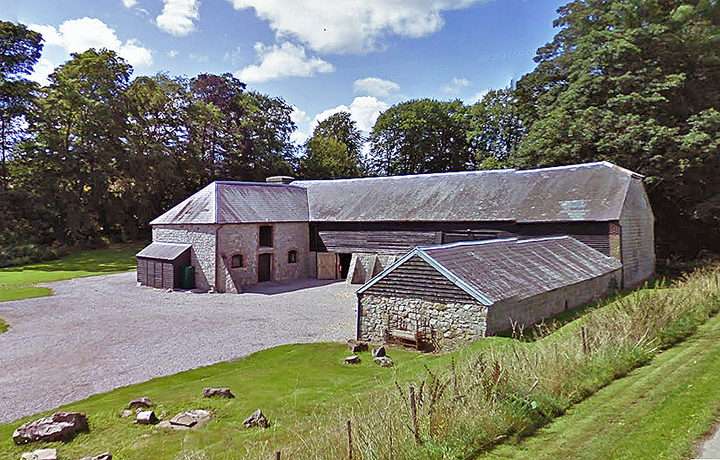
The fulfilment of Ruth and Simon’s marriage celebrations began in the first week of July 2011. Like many other couples who decide to marry in a Humanist ceremony in England, their first port of call was their local Register Office. After legally tying the knot at Lewisham Register Office in South London, it was time to prepare for the big event the following week.
Over to their wedding venue, Wick Bottom Barn, found deep in the stunning Wiltshire countryside just north west of Marlborough, a mere stone’s throw away from significant prehistoric sites such as Barbury Castle, the site of an ancient Iron Age Hill Fort, Silbury Hill and the Avebury Stone Circle!
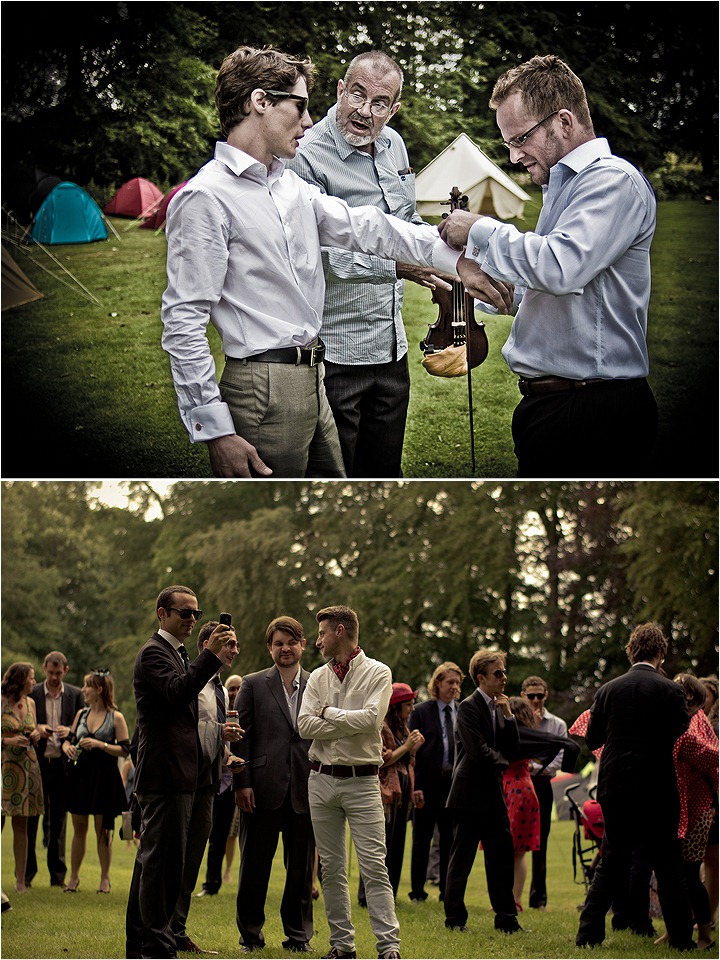
Their chosen venue was one of those ‘off-the-beaten-track’ types, little known except to locals and those with a patient and persistent eye on Google! A complete blank canvas, the couple with their families and friends transformed the stone-built barn and its enclosed grounds into a fully-functioning wedding venue, complete with catering equipment such as fridges, freezers, tables and chairs, PA and lighting equipment, and plenty of space for camping!
The day’s proceedings kicked off around 2pm with the ceremony, led by Humanist Celebrant Neil Taylor. Trained and accredited by the BHA, Neil commented that the wedding was:
“a lovely occasion and it was very enjoyable working with them on the script indeed”
– prior to the big day, Neil was in detailed correspondence with Ruth and Simon, developing their bespoke outline for the ceremony.
The script was adapted from a number of templates that Neil had at his disposal, and free of any legal or religious requirements, they were able to craft a completely personal series of vows etc.
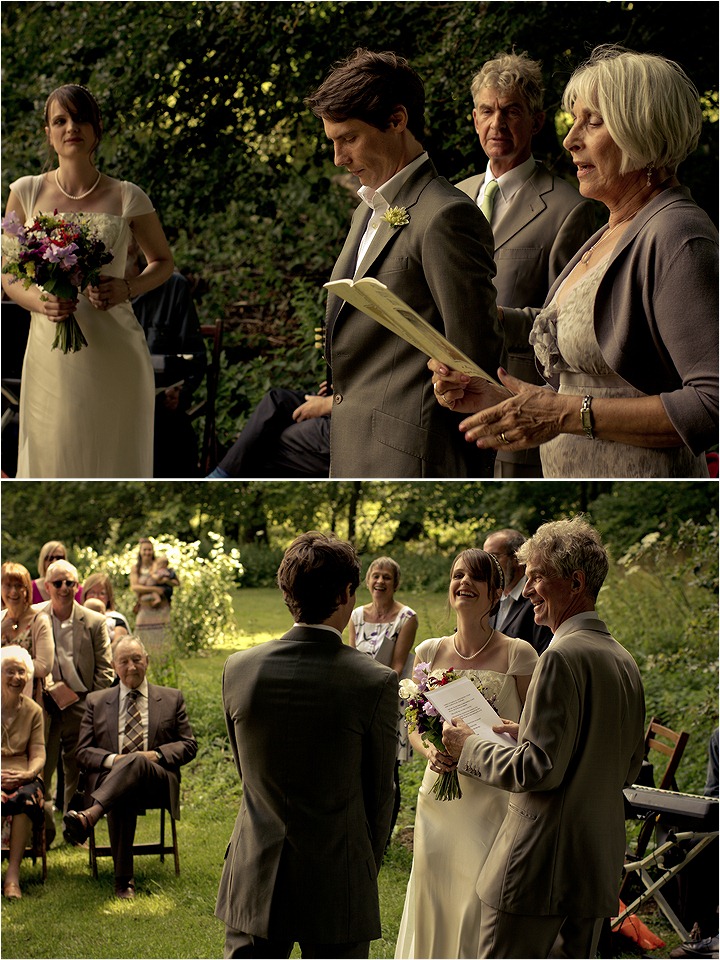
After the ceremony was over, the reception got underway, featuring freshly-prepared cuisine, live music of various styles throughout the day and late (very late) into the evening. The night ended with hitting the hay in tents put up by the guests themselves, the camping experience made all the more manageable by a small block of showers and toilets nearby, and a BBQ breakfast the next morning!
Decorations
Ruth and Simon sourced their gorgeous flowers from The Walled Garden At Mells – an amazing and unique English garden west of Frome which exclusively grows seasonal native flowers. A local florist selected and cut the flowers from the garden and arranged them to match Ruth and Simon’s sweet pea colour scheme.
Adding to the simple country-style wedding theme, they sourced blue glass bottles in varying colours and sizes and filled them with hedgerow flowers, which made an excellent series of centrepieces for the tables.
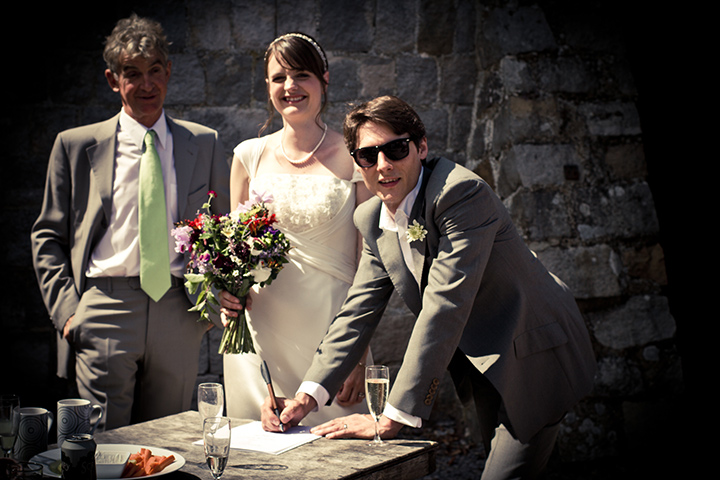
Why a Humanist Ceremony?
Besides the fact that their chosen reception venue didn’t possess a civil wedding ceremony licence, Ruth and Simon wanted to have their ceremony led by a Humanist Celebrant because they felt that humanism suited them ideologically, and gave them the freedom to do what they wanted on their very special day.
Not being religious or churchgoers themselves, they also felt uncomfortable at the prospect of tying the knot in a conventional religious context.
All about planning your own Humanist ceremony
So if the ceremony of Simon and Ruth strikes a few (wedding bell) chords with you, then we’ve put a little information together to help you out with the basics and practicalities of planning your own Humanist wedding.
What is a Humanist ceremony?
“Humanist weddings offer an important ceremony for non-religious people and have more flexibility than civil weddings” – Neil Taylor, the accredited Humanist Celebrant at Ruth and Simon’s wedding.
Those who don’t feel comfortable with the conformist aspects of a religious wedding have the option to legally marry by conducting a ‘civil ceremony’ (and have done since the 19th century) and those who want total freedom have the further alternative of holding a Humanist ceremony.
In essence, Humanist Ceremonies present a simple way to allow each couple complete freedom and control over this central part of their big day – whilst focusing on shared human values rather than traditional religious aspects.
“For those of us with no religious belief it’s important that we can mark these occasions with honesty, warmth and affection, using words and music that are personal and appropriate to the lives and the people involved” – The British Humanist Association (BHA)
Get married outside!
One of the major plusses for choosing a Humanist Ceremony, besides the aforementioned freedoms, is the opportunity to conduct the main part of your ceremony outdoors!
Who performs Humanist Ceremonies?
A Humanist Celebrant, who in most cases is an officiant trained by the British Humanist Association and authorised to carry out Humanist Ceremonies, including weddings, funerals, memorials and naming ceremonies (the equivalent of Christenings), will conduct and lead proceedings.
Independent celebrants (those not associated with the BHA) do also operate – but they are much harder to come by!
Finding Humanist Celebrants
For this, let’s ask Ruth and Simon again:
“We found Neil on the British Humanist Association’s website, as they provide a list of BHA-accredited celebrants by region, on a map, and also provide a postcode search function for your venue…”
But what about selecting the right celebrant for your day?
“We had a small number of celebrants in mind in the local area. We decided to go for Neil as we felt like he suited our personalities, and enjoyed his more formal (yet relaxed) approach compared with the others.”
Make sure to check credentials and experience too – they are important factors towards the smooth running of your big day.
“We then met with Neil in the person – which was sort of a two-way interview to see if both parties were comfortable…”
Where can I hold my Humanist Ceremony?
Pretty much anywhere is the simple answer. As long as you have permission from the owner of the property, Humanist weddings have been known to take place on the tops of hills, in forests, on beaches, in gardens and even in people’s front rooms if that’s what they want!
How much does it cost?
Rather than paying the Government or an appropriately-licensed venue a fee for the right to perform your ceremony, you only have to pay your Humanist Celebrant his or her fee.
The BHA sets out guidelines for what their accredited celebrants should charge, and in the case of wedding ceremonies, this is:
£350-£1000
The fee will vary between these amounts depending on local competition and the complexity or duration of your ceremony – check with the celebrant you have in mind to get an exact figure. In a situation where your preferred local celebrant is unavailable on your chosen wedding date and you have to source an alternative from further afield, you may have to pay travel and even accommodation costs.
Legal Prerequisites
At the time of writing, standalone Humanist Ceremonies are not recognised as legal marriages by the Government of England, Wales and Northern Ireland.
You must attend a Register Office or licensed civil marriage venue and gain a civil marriage certificate – a ceremony in itself which centres around ‘the legal parts’ of the procedure.
Couples who marry in Humanist Ceremonies often prefer to keep the legal civil ceremony as minimal as possible, so as to make their main Humanist Ceremony more special. This is known as a Registration, and you could invite only a few close members of the family at this stage to act as witnesses.
First of all, you need to give 16 days’ notice of your intention to marry at your local Register Office.
After the 16-day period, all that is required from the ceremony itself is that you exchange formal wording, including:
A ‘Declaratory’ phrase (“I do solemnly declare that I know not of any lawful impediment…” etc.)
A ‘Contractual’ phrase – (“I take you to be my lawful…” etc.)
Your Local Authority can provide you with the exact wording – you will be given a limited choice of phrases which cannot be adapted or altered.
These civil wedding ceremonies require a minimum of 2 witnesses.
This is followed by the formal signing of the marriage register or civil partnership document. You are now legally married (or partnered) and can continue to hold your Humanist Ceremony. You don’t need to exchange vows or rings.
Register Office versus Licensed Venue
Although you can carry out this form of minimal ceremony in an appropriately-licensed wedding venue, most couples prefer to do it in a Register Office due to the fact it is a great deal cheaper (£45+£4 for the certificate).
Some couples like to do this on the same day (the morning or early afternoon), and others (like Simon and Ruth) on a completely different day to their Humanist Ceremony.
If you do decide to hold both the legally-binding part of your ceremony and your Humanist wedding in a licensed venue, then do be aware that both your local Registrar and the Humanist Celebrant must be present – the celebrant is not authorised to carry out the legal aspect. However, in this format you may well be able to organise a seamless transition between registrar and celebrant.
Does my wedding have to be non-traditional?
The freedom of Humanist Ceremonies means you can do whatever you want! So aspects of a traditional ceremony such as the procession up the aisle, the father ‘giving away’ the bride or the exchanging of rings are more than welcome – equally you don’t have to include them either!
Vows and words
The vows and other words spoken during your Humanist Ceremony are completely up to you – there are no requirements, although your celebrant can recommend suitable vows if you are struggling. In the case of Ruth and Simon’s wedding described earlier in this article, their celebrant provided a suggested template script which they adapted to suit their preferences and match their personalities.
Humanist Weddings in Scotland
Scotland is one of only 7 countries in the world which allow Humanist celebrants to conduct legally-recognised civil wedding ceremonies. In fact, civil ceremonies conducted by Scottish celebrants, registrars and humanists alike, may be carried out anywhere deemed as an ‘approved place’.
So there we have it! Humanist weddings essentially offer more control over the content of your ceremony, free of legal and religious constraint. They allow you the freedom to hold an extremely personalised wedding ceremony, along with family and friends, in pretty much any location to which you have access – the only downside is that you will have to also undergo a separate civil ceremony in order to be recognised as legally married. You can easily find a local Humanist wedding celebrant by using the BHA’s efficient search tool.
Useful Links –
The British Humanist Association – https://humanism.org.uk
Our guide to handfasting and pagan weddings
Legal Aspects of a Civil Ceremony (for before your Humanist Ceremony) – https://www.gov.uk/marriages-civil-partnerships/overview
Photography
Captioned images were provided by:
Tierney Photography (Yorkshire)
John Barwood Photography (Bristol)
What is The Wedding Secret?
We are an online community and resource for marrying couples who are researching their big day online. Currently we list venues and other suppliers in specific areas across the country, including those in the South West such as Bristol, Gloucestershire, and have lots of wedding venues in Dorset, Wiltshire wedding venues and more. Over in the South East we have added plenty of Essex wedding venues, Surrey wedding venues and more!





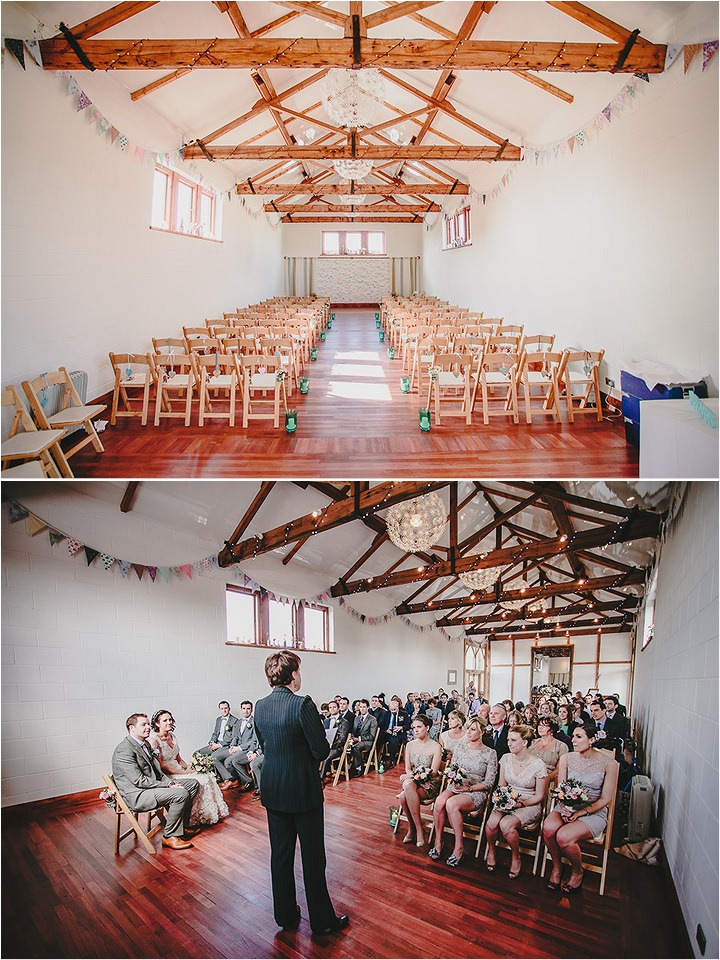

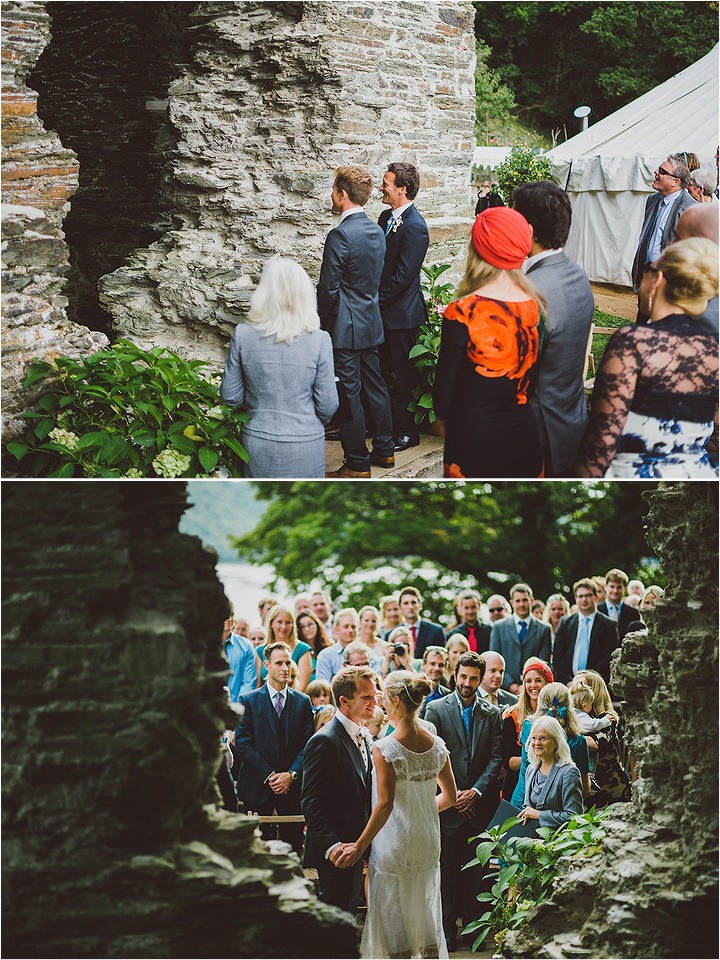
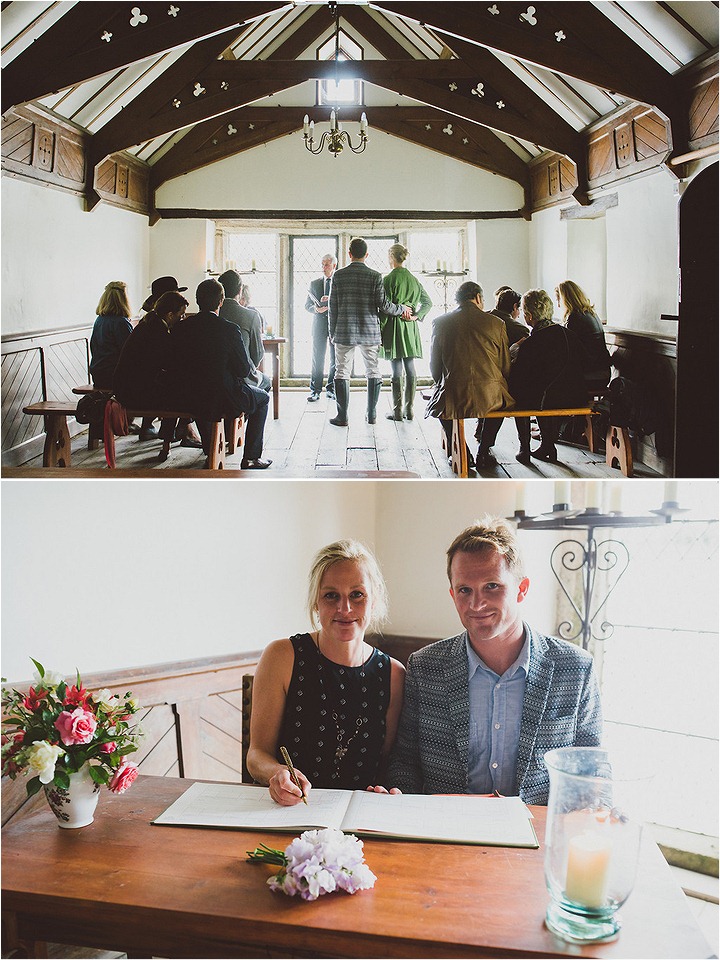
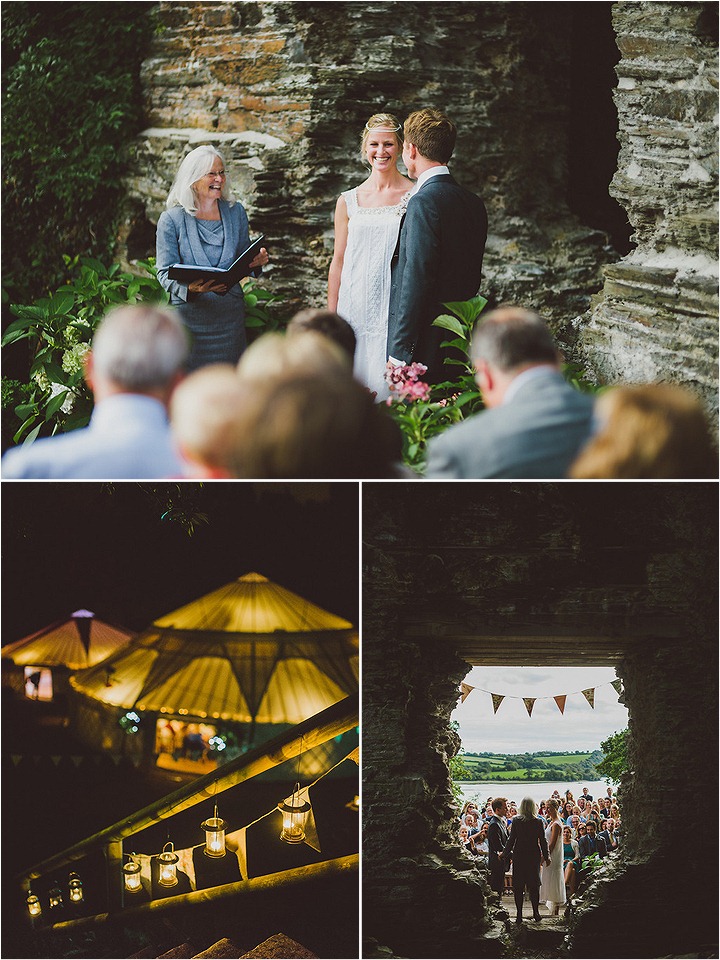




Lovely article – although I was a little surprised to know that the celebrant has a selection of “templates”. As a former BHA and now independent celebrant, all of the above applies, but I always start with a blank piece of paper and put the structure together with the couple. It really is about whatever they want and however they want it to be. Other organisations offering celebrants are http://www.independentcelebrants.com.
Lovely to see a discussion of humanist weddings and all their diversity!
Agree with Lesley about the issue of ‘templates’ though. I suppose a more accurate way of saying it is that we draw upon examples of other ceremonies we have written and/or the experience of our colleagues, and build on all this to create a unique ceremony for every time The structure and content are developed hand-in-hand, and always in partnerships with the couple.
there are also very few blogs and advice for after the wedding that are not religious based. i found one that is really good. the link is below.
For cultural reasons, me and my fiancé have opted for a civil ceremony in English (that will be legally binding) followed by a humanist ceremony in French that will be led by a bilingual friend of ours. Most of the humanist ceremony will be in French (our mother tongue and the tongue of our families). Now, I have heard that you (the couple who get married) need to exit the venue at the end of the civil ceremony. Can you confirm this? This would be really annoying as it would mean we’d have to leave the reception hall and come back just after. If the civil servant could leave instead of us, that would be much more seamless! Also, we are getting married in October and perhaps it will be raining outside!
Hi there. This is an excellent question, which has got us scratching our heads. Despite thorough research, we haven’t seen any official government legislation which states that the couple has to leave the ceremony room after the civil ceremony is complete.
Then we must defer to your local council for the final answer here. It certainly is not unheard of to hold blessings and other celebrations immediately after a civil ceremony is complete. Surrey council, for example says:
“Civil marriages and registration of civil partnership ceremonies on approved premises may be followed by a celebration, commemoration, or blessing of the couples’ choice, providing that it is not a religious ceremony and is separate from the civil ceremony”
There is no stipulation regarding leaving the room itself. Also civil ceremonies cannot be held in any language other than English in England and Wales, so swapping between English and French would not be allowed (we know this is not what you suggested).
In short, it would be wise to get in touch with the council that presides over the area/venue you are to be wed in. Discuss your options with your registrar, as they will know what to do.
What a great read!
Thanks for sharing. very educational!
Can we have a humanist wedding first and a civil wedding later. We have two different cultures and religions so not sure yet about when and how .
Very energetic article, I liked that bit. Will there be a part 2?